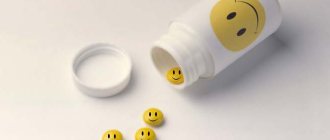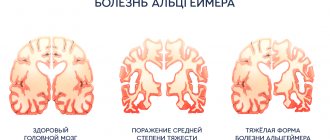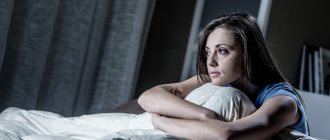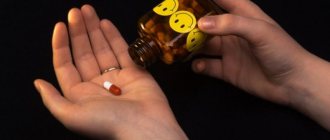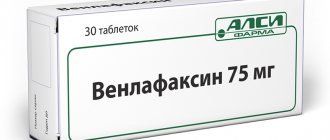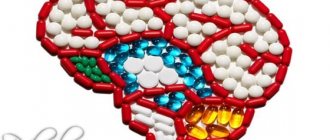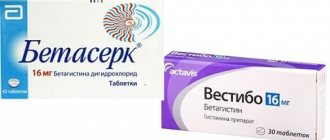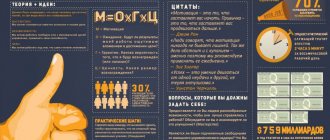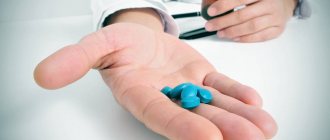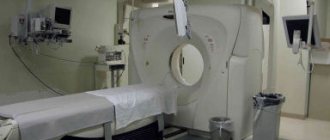Mechanism of action
The secret of our emotional life is revealed by the biochemical theory; its deterioration is based on processes that reduce the amount of nutrients in the human body.
Antidepressants are able to normalize chemical metabolism in brain cells, regulate the level of serotonin, dopamine and norepinephrine, hormones responsible for a person’s good mood. These drugs, depending on their action, can block the uptake of neurotransmitters by neurons or increase their concentration (production by the glands of the brain or adrenal glands).
Effect on the body
Of the three types of drugs, neuroleptics (antipsychotics) and tranquilizers are drugs that have the property of suppressing the central nervous system. In contrast, antidepressants act as stimulants and do not cause inhibition or drowsiness.
The main effect of antipsychotics is to block receptors in the nervous system, aimed at reducing the severity of severe symptoms in psychosis (including during treatment of alcoholism), delirium, hallucinations, delirium, and cognitive impairment.
Tranquilizers (anxiolytics) have similar properties; along with antipsychotics, they help:
- reduce tension
- remove anxiety, fear
- stabilize the functioning of the autonomic nervous system
The biggest problem with using tranquilizers is their ability to become addictive. It develops especially often against the background of the use of benzodiazepines and barbiturates. For this reason, they have recently lost their popularity and have been successfully replaced by minor or atypical antipsychotics, or other psychotropic drugs.
The mechanism of action of drugs for depression is the opposite effect on the nervous system. Antipsychotics suppress the activity of neurotransmitters and reduce dopamine levels, while antidepressants help stimulate and potentiate its production and increase the amount of serotonin and norepinephrine.
Good mood pills: what is their difference?
The main difference between the drugs is that tranquilizers are medications designed to eliminate any manifestations of depression:
- help cope with feelings of endless melancholy, loneliness and anxiety;
- relieve irritability;
- quell fear and despair.
The effect of these medications appears within a few minutes after taking the tablet and lasts up to 24 hours. But if you miss the next dose after that, negative feelings and worries will come back with renewed vigor.
In turn, antidepressants are not able to “turn around” the state of the nervous system so quickly. To get the effect of taking medications, you will need to take a whole course of pills. But when the pills do start to work, their work will be aimed at eliminating the problem at the root, and not at temporarily eliminating the consequences.
It can be very difficult for a patient to stop taking tranquilizers. The so-called withdrawal syndrome occurs, accompanied by many negative symptoms:
- sweating;
- convulsions;
- the emergence of new emotional anxieties and experiences;
- increased heart rate;
- impaired coordination of movements;
- slow reaction.
But it’s much easier to “jump” off antidepressants. Over a long course of administration, the active substances will already have time to accumulate in sufficient quantities in the blood and tissues, which means they will have an effect on the central nervous system for some time after stopping the drug.
In most cases, tranquilizers and antidepressants are prescribed together: some should help get rid of symptoms, while others will look for and eliminate the cause of their occurrence.
Indications for use
Antidepressants are recommended and widely used in the treatment of:
- neuroses;
- phobias (fears);
- increased anxiety;
- chronic depression;
- prolonged stress;
- panic states;
- anerexia or bulimia;
- sexual dysfunctions;
- affective disorders;
- giving up drugs, alcohol, nicotine.
Patient reviews of taking antidepressants are varied.
Sometimes, when they are discontinued, symptoms of depression or anxiety reappear in patients; also, some drugs are not used in women using a diet to lose weight, as they can contribute to excess weight gain. Therefore, it is very important to choose the right drug and carefully study its side effects. Only after weighing all the pros and cons at an appointment with a doctor (neurologist, psychotherapist, psychiatrist) can you go to the pharmacy to purchase an antidepressant.
Drugs that affect the central nervous system are not harmless. They have a number of contraindications that should be taken into account before starting treatment.
Read more: Moller tupla omega 3 instructions for use and prices
Neuroleptics
They contain compounds that can have an inhibitory effect in cases of severe mental state deviations. That's why they are also called antipsychotics. Indications for the use of these drugs are the following conditions:
- delusions and hallucinations
- stupor
- motor excitement
- paranoia
- unmotivated aggression
- behavioral disorders
- changes in consciousness, orientation and memory
Therefore, they are used primarily by psychiatrists and narcologists. For alcoholism, they are prescribed during the development of delirium and severe psychosis. Illiterate use of anxiolytics leads to various negative reactions:
- acute or chronic neuroleptic syndrome
- dyskinesia
- drug-induced depression
- metabolic disorders leading to weight gain and the development of type II diabetes
Separately, it is worth noting a new class of antipsychotics (atypical neuroleptics), which are no less effective in influencing the mental state. However, they do not cause extrapyramidal and other complications. But when treating severe deviations, it is necessary to use drugs with typical properties.
Antidepressants
Antidepressants are psychotropic drugs used primarily for the treatment of depression, affecting the level of neurotransmitters, in particular serotonin, norepinephrine and dopamine. In a depressed patient, they improve mood, reduce or relieve melancholy, lethargy, apathy, anxiety, restlessness, irritability and emotional stress, increase mental activity, normalize the phase structure and duration of sleep, appetite.”
Antidepressants do not cause inhibition, drowsiness and distraction, unlike antipsychotics and tranquilizers. They are helping:
- improve mood
- avoid suicide
- overcome melancholy
- cause emotional uplift
Despite the diametrically opposed mechanisms, these drugs, just like antipsychotics, help to calm down, normalize autonomic reactions, and eliminate psychosomatics. They can also have a positive effect on functional disorders of the digestive and respiratory organs. These properties are widely used in the process of restoring an alcoholic's body after detoxification.
Tricyclic and serotonin-selective compounds have a particularly pronounced sedative effect. In this they are similar to antipsychotics, so these medications are recommended for the following diseases:
- anxiety disorder
- motor restlessness due to depression
- obsessive-compulsive syndrome (obsessions and compulsions)
- phobias
- affective insanity
Read more: Zopnik - medicinal properties and contraindications
Daytime tranquilizers
They form a separate group of anxiolytics, the hypnotic effect of which is minimal. In addition, they do not depress cognitive functions, which is important for working people. That is, the feeling of drowsiness and fatigue is minimized and will not cause such inconvenience as more potent drugs could cause.
Their chemical composition is similar to benzodiazepines, but their effect on the body is much less strong and does not cause lethargy.
The daily intake list is presented by the following means:
- Gidazepam
- Grandaxin
- Mebicar
- Medazelam
- Trioxazine
- Trimetozin
- Oxazepam
- Prazepam
- Phenibut
The main task assigned to them is to relieve excess tension in the nervous system and calm the person. The prevailing opinion that anxiolytics are narcotic substances is erroneous, because their action is aimed at achieving the completely opposite effect.
Classification
1. Thymiretics stimulate the activity of the nervous system. 2. Thymoleptics, drugs with a pronounced sedative (calming) effect. 3. Non-selective action (Melipramine, Amizol). 4. Selective action (Flunisan, Sertraline, Fluvoxamine, Maproteline, Reboxetine). 5. Monoamine oxidase inhibitors (Transamine, Autorix). 6.
Selective (Coaxil, Mirtazapine). 7. Mild antidepressants (Doxepin, Mianserin, Tianeptine) gently improve sleep and mood, and have a beneficial effect on a person’s perception of reality. 8. Strong antidepressants (Imipramine, Maprotiline, Amitriptyline, Paroxetine) actively and quickly eliminate symptoms of depression, but have a number of significant side effects.
Mexidol
Mexidol belongs to the group of antihyxants with nootropic and anxiolytic properties and an antioxidant effect. In its antihypoxic activity, Mexidol is significantly superior to piracetam and nootropil. The drug has a wide range of pharmacological activity, being an antihypoxic, stress-protective, nootropic, anticonvulsant and anxiolytic drug that inhibits free radical processes of lipid oxidation. The pharmacological effects of Mexidol are realized at three levels: neuronal, vascular and metabolic.
The therapeutic effect of Mexidol is detected from 10 to 300 mg/kg. The drug is especially indicated in the treatment of prolonged astheno-depressive syndromes; it relieves tension and anxiety, eliminates feelings of anxiety. The effectiveness of the drug in the treatment of somatovegetative disorders accompanying manifestations of depression, its ability to restore impaired circadian rhythm, and a positive effect on cognitive functions have been proven.
Mexidol can be prescribed intravenously (drip or stream), intramuscularly and orally.
Return to Contents
Comparison and conclusions
If we compare antipsychotics and tranquilizers, we should note the similarity of their actions. Both groups of drugs have the ability to reduce the activity of neurotransmitters and cause inhibition. Psychiatrists, narcologists and neurologists use the high effectiveness of the first type of medicine for serious mental disorders.
Antipsychotics and antidepressants are difficult to compare. They are represented by two completely different classes of substances that are used for various diseases. Neuroleptics relieve psychosis, anxiety and other manifestations of mental disinhibition. Anti-depression medications only help when the patient loses interest in life. These remedies will not be able to lift the mood if the person is not sick. And antipsychotics are capable of exerting their effect in any situation.
The use of psychotropic substances in the treatment of various forms of mental and neurological pathology is possible only under the supervision of a specialist. Self-medication in this case can lead to harmful consequences or the development of drug addiction.
The emergence of addiction
The likelihood of dependence on benzodiazepines exists even when taking recommended doses, but over a long period. Studies have shown that drugs of this series provoke the development of mental and physical dependence. Withdrawal symptoms are usually more painful and last longer than drug withdrawal.
Dependence in patients develops approximately 4–6 months after taking therapeutic doses of the medication. But few patients become drug addicts if they do not have the goal of getting pleasure from using the drug.
People who use high doses of benzodiazepines develop addiction within 2–3 months.
The most popular antidepressants without prescriptions
Names and prices:
- Deprim, a sedative based on extracts from medicinal herbs, has a calming and relaxing effect. Its cost is 200-250 rubles;
- persen (170-230 rubles), a herbal remedy containing mint, lemon balm, valerian, helps well in stressful situations and emotional tension;
- novo-passit (270-350 rubles), a herbal remedy that has a complex effect on the nervous system - elevates mood, promotes a positive perception of the world.
Alcohol tinctures have a mild antidepressant effect:
- maralia root, immortelle, rhodiola rosea (relieves feelings of fatigue, apathy);
- Livezes, raise the overall tone of the body;
- ginseng, promotes vigor and activity;
- lures, stimulates performance;
- mint, valerian, motherwort, normalize sleep, relieve nervous tension. The average prices for these products in pharmacies range from 50 to 100 rubles.
Tricyclic antidepressants are used to treat persistent and prolonged depression.
List of drugs:
- Zoloft, relieves signs of depression and improves emotional mood;
- aphazene, a mild drug that relaxes the nervous system;
- lerivon, normalizes the level of joy hormones;
- amitriptyline, actively neutralizes irritation, phobias, anxiety and somatic signs of neurotic disorders;
- clomipramine, helps reduce emotional tension and stress during depression;
- people-loving, normalizes mood, helps reduce anxiety;
- Sarotene has a calming effect.
Despite their powerful effect in the treatment of mental disorders, tricyclic drugs have a number of significant side effects, medical studies show that because of them, more than 30% of patients stopped taking these drugs without completing the course of treatment. This has prompted pharmacists to create new drugs without side effects that negatively affect the digestive, renal systems and metabolic processes in the body, as well as drugs that do not cause “withdrawal syndrome.”
Read more: Vitamin B12 contraindications and side effects of cobalamin
New generation antidepressants (list of the best drugs):
- venlafaxine, doctors value this drug for its unique feature - if side effects appear, its dose can be reduced and they will disappear, i.e. patients have the opportunity to complete the course of therapy completely, without discontinuing or replacing the drug;
- serenate, an active medicine, without the effect of gaining excess weight;
- fluoxetine has proven itself in the treatment of bulimia (constant desire to eat), restores the activity of the emotional sphere and fights insomnia.
List of the best drugs
Some antidepressants have fewer unwanted effects. More often they have a weak therapeutic effect, so they can be purchased without a doctor’s prescription.
Such drugs include:
- Afobazole (has a mild antidepressant, anti-anxiety effect);
- Negrustin (anti-anxiety and antidepressant drug);
- Leuzea extract (improves appetite and mood, increases performance);
- tincture of ginseng (reduces fatigue, increases blood pressure and performance);
- Schisandra tincture (has a stimulating effect on the central nervous system, increases blood pressure, improves vision);
- Persen (helps relieve irritability, relieve sleep disorders, increased nervous excitability);
- Novo-Passit (eliminates anxiety).
Medicines that can be purchased without a prescription help cope with neuroses, but they should not be taken for a long time and uncontrolled.
The most common tranquilizers include:
- Phenazepam,
- Lorazepam,
- Bromazepam,
- Oxazepam,
- Gidazepam,
- Estazolam,
- Nitrazepam,
- Flunitrazepam,
- Triazolam,
- Diazepam,
- Clonazepam,
- Hydroxyzine.
Special Recommendations
Before you start taking any antidepressant, it is important to know:
- these medications can inhibit the functioning of the nervous system, so those people whose profession is related to concentration and car enthusiasts need to choose a drug without a sedative effect;
- antidepressants and alcohol are incompatible; simultaneous use will make treatment useless or may cause an exacerbation of the disease;
- For long-term treatment, it is important to choose drugs from this group together with your doctor and constantly be under his supervision.
Interesting articles:
- Guarana extract for weight loss benefits and harm properties of the plant action
- Homeopathy for weight loss drugs
- Candles for immunity of adults and children
- Citicoline: instructions for use, analogues, effects and price

